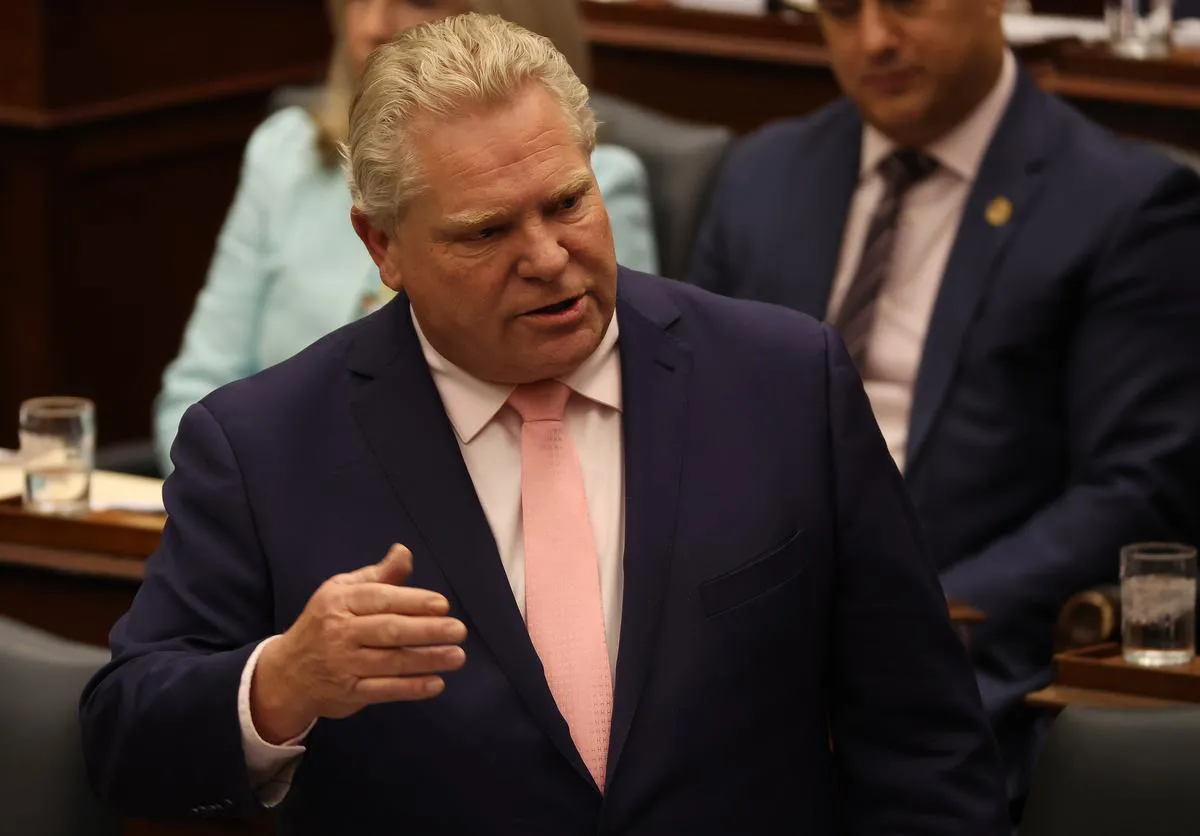The Ontario Court of Appeal has struck down Premier Doug Ford’s controversial campaign finance law that limits spending by unions and other third parties.
In a significant legal victory Monday for labour unions and the Canadian Civil Liberties Association, the court has given Ford’s government “12 months to allow Ontario to fashion Charter-compliant legislation.”
But Attorney General Doug Downey’s office said the Progressive Conservatives “are disappointed with the outcome and will be appealing the decision” to the Supreme Court of Canada.
The successful legal challenge was mounted by the Working Families coalition of unions, the Elementary Teachers’ Federation of Ontario, the Ontario Secondary School Teachers’ Federation, and the Ontario English Catholic Teachers’ Association, among others.
They argued their members’ rights were unfairly hindered by the law preventing third-party political action committees from spending more than $600,000 on advertising and other activities in the 12 months before an election.
“The challenged spending restrictions infringe the informational component of the voter’s (Charter) right to meaningful participation in the electoral process, as set out by the Supreme Court,” the court ruled.
In 2021, Ford invoked the Charter of Rights’ “notwithstanding” clause to overturn a judge’s ruling that his legislation limiting election spending by third-party groups was unconstitutional.
The premier was in a rush, because the June 2022 election was looming and the Tories’ feared an onslaught of anti-Ford advertising before the writ period.
While the court of appeal found “the notwithstanding clause was properly invoked,” it concluded the Tories still infringed upon Charter rights.
Speaking for the government, Finance Minister Peter Bethlenfalvy conceded “it never feels good to lose.”
Cara Zwibel, director of fundamental freedoms for the civil liberties association, said it was “encouraging that the court has found the overly broad third-party spending limits unconstitutional.”
“But (it is) concerning that the lower court’s error (in finding no violation of the right to vote) had potential to impact the last election,” said Zwibel.
“The Ontario government tried to insulate its unconstitutional legislation by invoking the notwithstanding clause. The court of appeal’s finding that the right to vote was unreasonably infringed, making the notwithstanding clause irrelevant to the analysis, is therefore a very important victory,” she said.
NDP Leader Marit Stiles — whose party, like the Liberals and the Greens, had opposed Ford’s restrictions — said “it’s just yet another example of how wrong this government is getting it when they trample on the democratic rights of Ontarians.
“We will continue … to stand up against them and for the democratic rights of all Ontarians,” said Stiles.
Liberal MPP Stephen Blais (Orléans) noted it was yet another legal setback for the Tories and urged them to cut their losses instead of appeal to the Supreme Court.
“The premier likes to position himself as a fighter — someone who’s going to fight for Ontarians. When I look at a fighter, I want someone who’s going to win one every once in a while,” said Blais.
“This government has a track record of going into the big fight and losing,” he said.
“When you’re spending millions of taxpayers’ dollars trying to change critical pieces of legislation — trying to use the notwithstanding clause to subvert people’s rights — I think Ontarians would prefer that that money be invested into health care and education.”
JOIN THE CONVERSATION
does not endorse these opinions.



